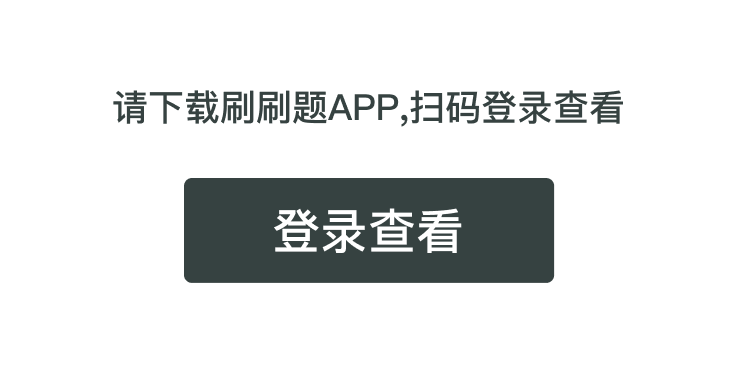大学职业资格刷题搜题APP

创建自己的小题库
搜索
【简答题】


Forget Twitter and Facebook, Google and the Kindle. Television is still the most influential medium around. Indeed ,for many of the poorest regions of the world, it remains the next big thing——finally becomes globally available. And that is a good thing, because the TV revolution is changing lives for the better.
Across the developing world, around 45% of families had a TV in 1995; by 2005 the number had climbed above 60%. That is some way behind the U.S. , where are more TVs than people, and where people now easily get access to the Internet. Five million more families in sub-Saharan Africa will get a TV over the next five years. In 2005 , after the fall of the Taliban(),which had outlawed TV, 1 in 5 Afghans had one. The global total is another 150 million by 2013——pushing the numbers to well beyond two thirds of families.
Television’s most powerful effect will be on the lives of women. In India, researchers Robert Jensen and Emily Oster found that when TVs reached villages, women were more likely to go to the market without their husbands’ approval and less likely to want a boy rather than a girl. They were more likely to make decisions over child health care. TV is also a powerful medium for education. In the Indian state of Gujarat, Chitrageet is a popular show that plays Bollywood songs with words in Gujarati on the screen. Within six months, viewers had made a small but significant improvement in their reading skills.
Too much TV has been associated with violence, overweight and loneliness. However, TV is having a positive influence on the lives of billions worldwide.
小题1: The underlined word “outlawed” in paragraph 2 probably means “”.A.allowedB.forbiddenC.offeredD.refused小题2:Which of the following is TRUE according to the passage?A.Americans used to get access to the Internet easily.B.The world’s TV sets will total 150 million by 2013.C.45% of families in the developing countries had a TV in 2005.D.Over two thirds of families in the world will have a TV by 2013.小题3:The author intends to.A.stress the advantages of TV to people’s lives B.persuade women to become more independent C.encourage people to improve their reading skills D.introduce the readers some websites such as Google小题4: What would be the best title for the passage?A.TV Will Rule the WorldB.TV Will Disturb the World C.TV Will Better the WorldD.TV Will Remain in World小题5: From the passage, we know _______________.A.It is impossible for women in India to get access to TVs now.B.Robert Jensen and Emily Oster are Indian women.C.Women in India are more likely to want a girl than a boy because of the arrival of TV.D.Viewers of a popular TV show can improve their reading skills greatly in half a year.

题目标签:塔利班
 分享
分享
 反馈
反馈 收藏
收藏 举报
举报
参考答案:


举一反三
【单选题】E Forget Twitter and Facebook, Google and the Kindle. Television is still the most influential medium around. Indeed, for many of the poorest regions (地区) of the world, it remains the next big thing—f...
A.
allowed
B.
banned
C.
offered
D.
refused
【单选题】E Forget Twitter and Facebook, Google and the Kindle. Television is still the most influential medium around. Indeed, for many of the poorest regions (地区) of the world, it remains the next big thing—f...
A.
Americans used to get access to the Internet easily.
B.
The world’s TV sets will total 150 million by 2013.
C.
45% of families in the developing countries had a TV in 2005.
D.
Over two thirds of families in the world will have a TV by 2013.
【单选题】Forget Twitter and Facebook, Google and the Kindle. Television is still the most influential medium around. Indeed, not many of the poorest regions (地区) of the world, it remains the next big thing—fin...
A.
TV Will Rule the World
B.
TV Will Disturb the World
C.
TV Will Better the World
D.
TV Will Remain in World
【单选题】E Forget Twitter and Facebook, Google and the Kindle. Television is still the most influential medium around. Indeed, for many of the poorest regions (地区) of the world, it remains the next big thing—f...
A.
stress the advantages of TV to people’s lives
B.
persuade women to become more independent
C.
encourage people to improve their reading skills
D.
introduce the readers some websites such as Google

相关题目:
【单选题】E Forget Twitter and Facebook, Google and the Kindle. Television is still the most influential medium around. Indeed, for many of the poorest regions (地区) of the world, it remains the next big thing—f...
A.
allowed
B.
banned
C.
offered
D.
refused
【单选题】E Forget Twitter and Facebook, Google and the Kindle. Television is still the most influential medium around. Indeed, for many of the poorest regions (地区) of the world, it remains the next big thing—f...
A.
Americans used to get access to the Internet easily.
B.
The world’s TV sets will total 150 million by 2013.
C.
45% of families in the developing countries had a TV in 2005.
D.
Over two thirds of families in the world will have a TV by 2013.
【单选题】Forget Twitter and Facebook, Google and the Kindle. Television is still the most influential medium around. Indeed, not many of the poorest regions (地区) of the world, it remains the next big thing—fin...
A.
TV Will Rule the World
B.
TV Will Disturb the World
C.
TV Will Better the World
D.
TV Will Remain in World
【单选题】E Forget Twitter and Facebook, Google and the Kindle. Television is still the most influential medium around. Indeed, for many of the poorest regions (地区) of the world, it remains the next big thing—f...
A.
stress the advantages of TV to people’s lives
B.
persuade women to become more independent
C.
encourage people to improve their reading skills
D.
introduce the readers some websites such as Google

参考解析:


题目纠错 0
发布

 复制链接
复制链接 新浪微博
新浪微博 分享QQ
分享QQ 微信扫一扫
微信扫一扫





